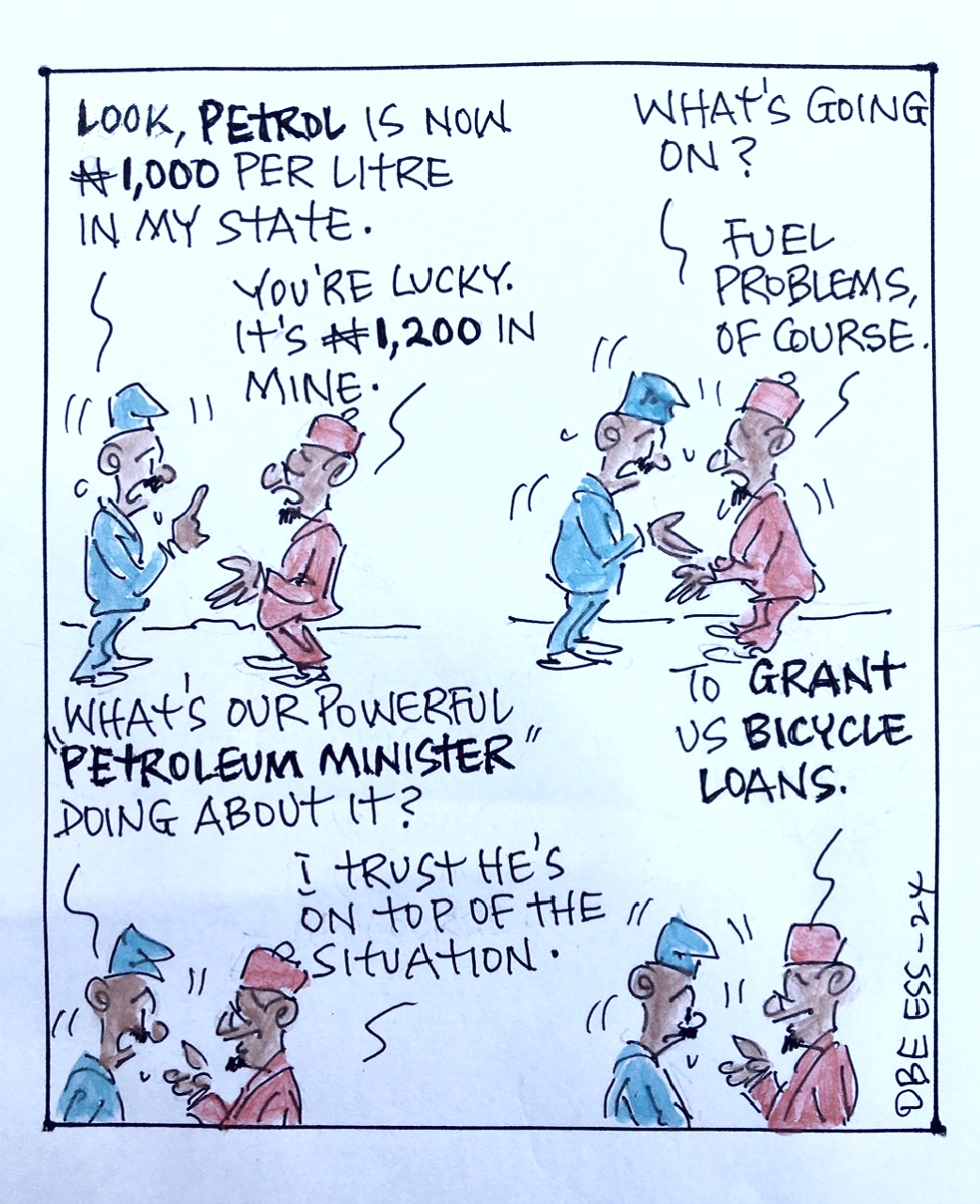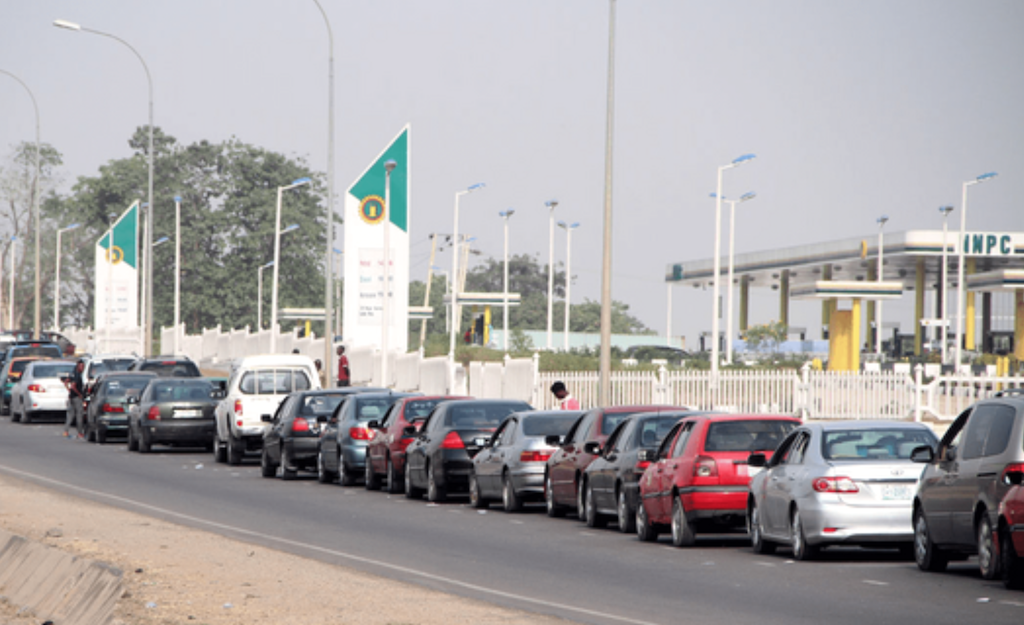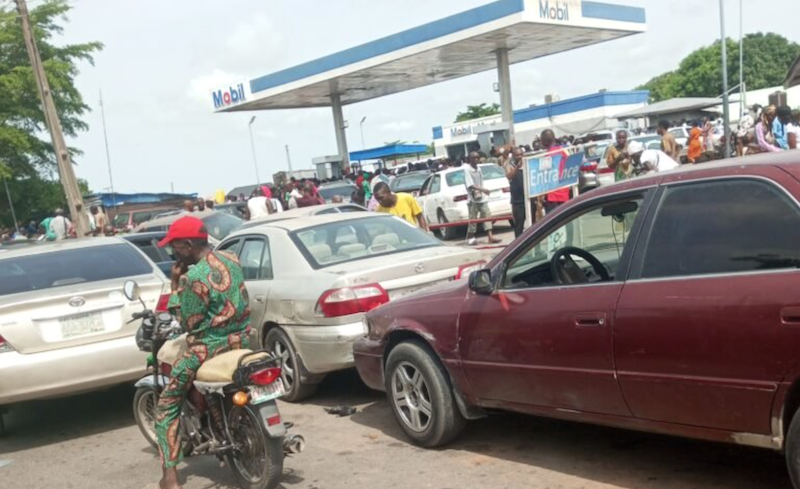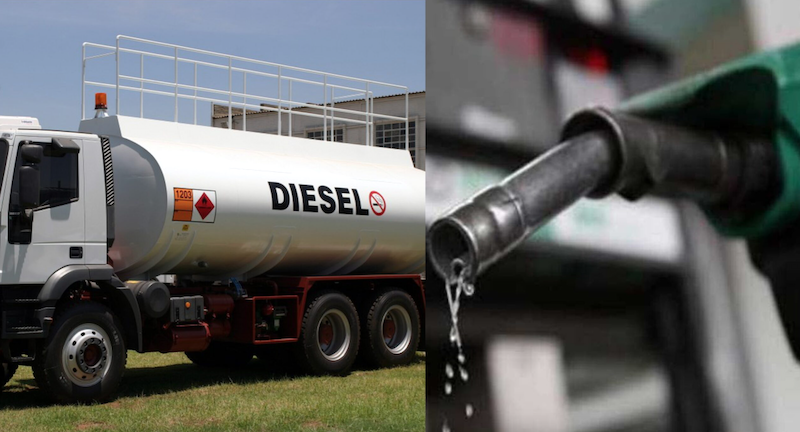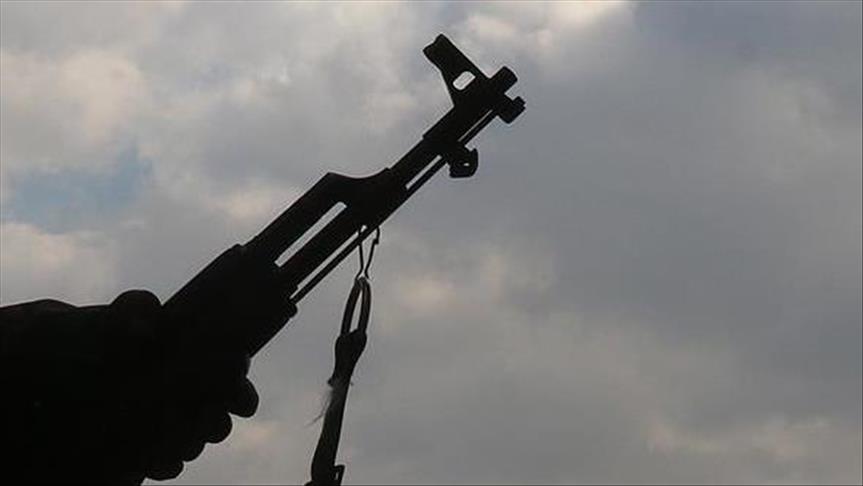As fuel scarcity and long queues persist, commuters in the Federal Capital Territory (FCT) witness a hike in the cost of transportation, and many are stranded.
Some commuters narrated their experiences in separate interviews on Tuesday in Abuja.
According to them, the situation presents more days of uncertainty and frustration, thus urgently calling for Federal Government’s intervention.
Many parts of the city, known for its bustling streets and vibrant life, have been gripped by long queues snaking around filling stations.
This is as citizens wait patiently for a chance to fill up their tanks.
Mr Ahmed Tanko, a civil servant, said Nigerians keenly felt the impact of the fuel scarcity on their daily lives.
“Transport fares have skyrocketed, leaving many struggling to afford the cost of commuting to work or school.
“I used to spend N400 on transport to work, but now I have to pay almost double that amount.
“The new month (May) has not started, and the cost of transport is almost gulping most of the salaries that were paid in the previous month,” he said.
Similarly, Mrs Angela Adebe, a teacher, said she may be forced to leave her job as her meagre salary could not transport her to work and care for her family.
Adebe said:” I am a poor widow with three children. All I have as a source of livelihood is my teaching job.
“With this instability in our economy, things are already bad, but we have been managing.
“Now the high cost of transportation due to the recent fuel scarcity is like adding petrol to a burning fire. If things persist, I may have to quit my job.
“Honestly, it is too much for me to handle. The authorities must act quickly because if I lose my job, how will my children survive?”
Also, Mr James Akar, an office driver, said he used to pay N500 from his house in Orozo, a suburb, to the town, but he pays N700 to the town today.
“I am wondering what the cost will be as I close from work and even tomorrow.
“Planning has become very difficult for us salary earners. I am sure it is also not any better for business people because there is no money in circulation,” he said.
Meanwhile, Mr Amos Danlami, a commuter, said he had to use public transportation to work after queuing at a station for hours without getting fuel the previous day.
Danlami said: “I think this scarcity has become an excuse for marketers to exploit poor Nigerians.
“The worst of it is the blame game between the Independent Petroleum Marketers Association of Nigeria (IPMAN) and the Nigerian National Petroleum Corporation (NNPC).
“Nigerians no longer know whose theory to believe, and if I am asked, their tales do not really matter to Nigerians.
“What matters most is for the Federal Government to look into the situation and find an immediate solution for the benefit of poor citizens,” he said.
On her part, Ms Fatima Sule, a student who relies on public transportation to get to her university, the narrative is no different from others.
Sule prayed for the government’s intervention in the fuel crises and the increasing cost of living in the country.
Mrs Veronica David, a mother of four, said, “In spite of the NNPC’s assurances that fuel scarcity is being addressed, the reality on the ground tells a different story.
“I have been to several filling stations, and the queues are endless except for the black marketers selling by the side of the stations whose products cannot be trusted.
“I don’t know how long we can endure this hardship.”
Also, a businessman, Mr Amaechi Nwaneri, also reiterated the need for government’s action to tackle the issue of long queues at fuel stations.
“With the economic inflation rate soaring at 33.2 per cent in March, the impact of fuel scarcity on the cost of living cannot be ignored.
“We are already struggling to make ends meet, and this fuel scarcity is worsening things.
“The fuel scarcity crisis in Abuja is a stark reminder of the need for accountability and transparency in managing Nigeria’s oil resources.
“Until concrete steps are taken to address the root causes of the crisis, the people of Abuja will continue to suffer, their lives disrupted by forces beyond their control,” he said.
Nwaneri urged the Federal Government to prioritise the welfare of its citizens and tackle the situation.

